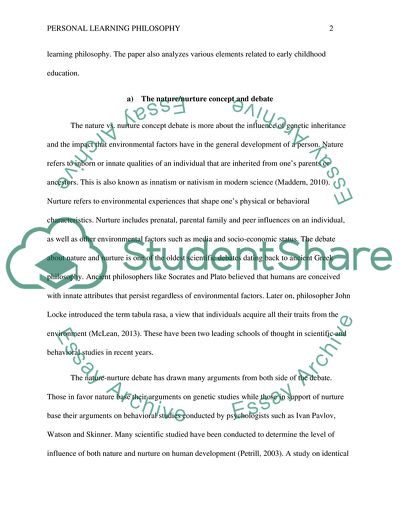Cite this document
(Developing a Personal Learning Philosophy Essay Example | Topics and Well Written Essays - 1500 words, n.d.)
Developing a Personal Learning Philosophy Essay Example | Topics and Well Written Essays - 1500 words. https://studentshare.org/education/1834530-developing-a-personal-learning-philosophy
Developing a Personal Learning Philosophy Essay Example | Topics and Well Written Essays - 1500 words. https://studentshare.org/education/1834530-developing-a-personal-learning-philosophy
(Developing a Personal Learning Philosophy Essay Example | Topics and Well Written Essays - 1500 Words)
Developing a Personal Learning Philosophy Essay Example | Topics and Well Written Essays - 1500 Words. https://studentshare.org/education/1834530-developing-a-personal-learning-philosophy.
Developing a Personal Learning Philosophy Essay Example | Topics and Well Written Essays - 1500 Words. https://studentshare.org/education/1834530-developing-a-personal-learning-philosophy.
“Developing a Personal Learning Philosophy Essay Example | Topics and Well Written Essays - 1500 Words”. https://studentshare.org/education/1834530-developing-a-personal-learning-philosophy.


